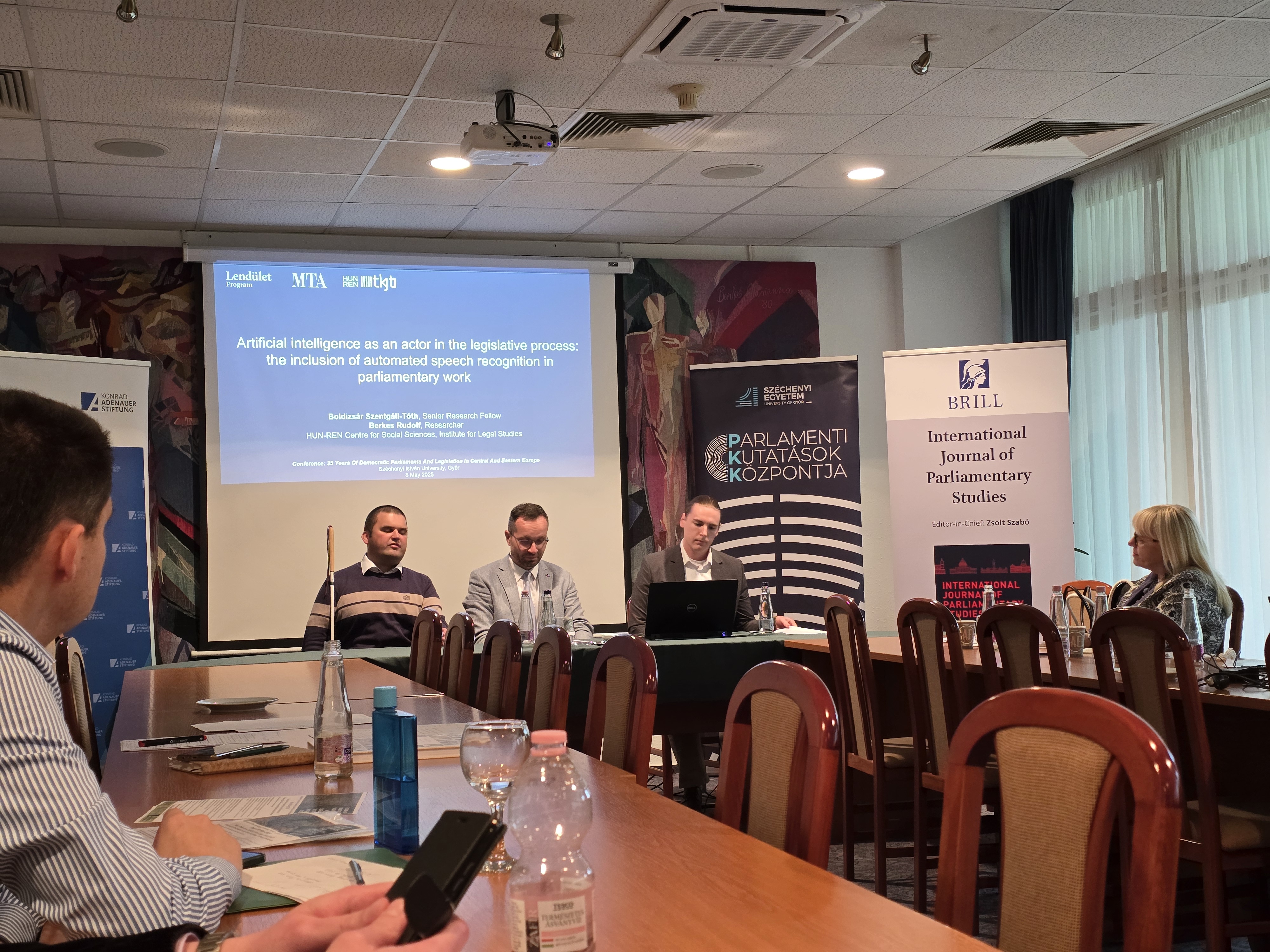Members of our research group, Boldizsár Szentgáli-Tóth, PI, and Rudolf Berkes presented on 8 May 2025 in Győr at the 35 Years Of Democratic Parliaments And Legislation In Central And Eastern Europe conference organized by the Széchenyi István University.
Title: Artificial intelligence as an actor in the legislative process: the inclusion of automated speech recognition in parliamentary work

Abstract: As AI-based technology evolves the issue of regulation comes to the forefront in numerous ways. The EU approached AI regulation in a horizontal manner. After intense negotiations and several re-drafts, the EU AI Act was adopted during the first half of 2024, and its implementation is underway. Moreover, as a new soft law, the International Parliamentary Union has also passed its own resolution in late 2024 to offer guidance to national parliaments on the principles of using AI in parliamentary operations. The enactment of the IPU Resolution shows that legislation may be touched in another way, it will certainly become a user of AI itself to achieve a more efficient parliamentary operation. In Brazil, to offer a recent example, after a law was passed, the initiator revealed that the draft was covertly prepared using AI.
Legislative bodies can benefit from AI-based solutions in a variety of ways, including facial recognition, natural language processing, document drafting, communication with external stakeholders, managing large amounts of documentation, and cybersecurity, to mention a few. We chose automated speech recognition (ASR) from among all of the major domains of application because our experience has shown that ASR is the most developed area of AI used in parliamentary work processes. A very simple reason could explain this. The cessation of stenographer education and consequently the difficulties in recruitment inspired the launch of AI-based solutions in many countries. This constitutes an excellent example of how practical needs meet with evolving technological capabilities. With this in mind, our presentation focuses on mapping existing ASR models in different countries, ranging from Bahrain to Italy, Estonia to Argentina. We aim to demonstrate how parliamentary AI-based technologies can be introduced with minimal risk and most benefit, as well as to identify the ethical standards that AI will need to represent in the legislative process.
According to the EU's AI Act, only AI-based applications that actively seek to sway voter behavior or determine the outcome of a vote in relation to democratic processes are deemed high-risk. Therefore, our view is that technology that supports the legislature's internal operations falls outside this classification. Although European legislation generally acknowledges and reflects on the risks of new technology, such as AI poses to democratic processes, it still allows for a relatively broad scope for the development of AI-based software that could potentially streamline routine tasks in parliaments. As a result, however, the legislative process may increasingly rely on AI in various aspects of its daily operations, and during the legislative process as a whole.
Nevertheless, we have only a limited understanding of the changes brought about by AI, which is already being deployed in parliaments worldwide. The future of our democracies also depends on conducting a more comprehensive investigation in this area. Since parliamentary work cannot continue to be insensitive to the rapidly accelerating speed of technological advancement in the long run, we aim to address these shortcomings, at least in the area of ASR.

